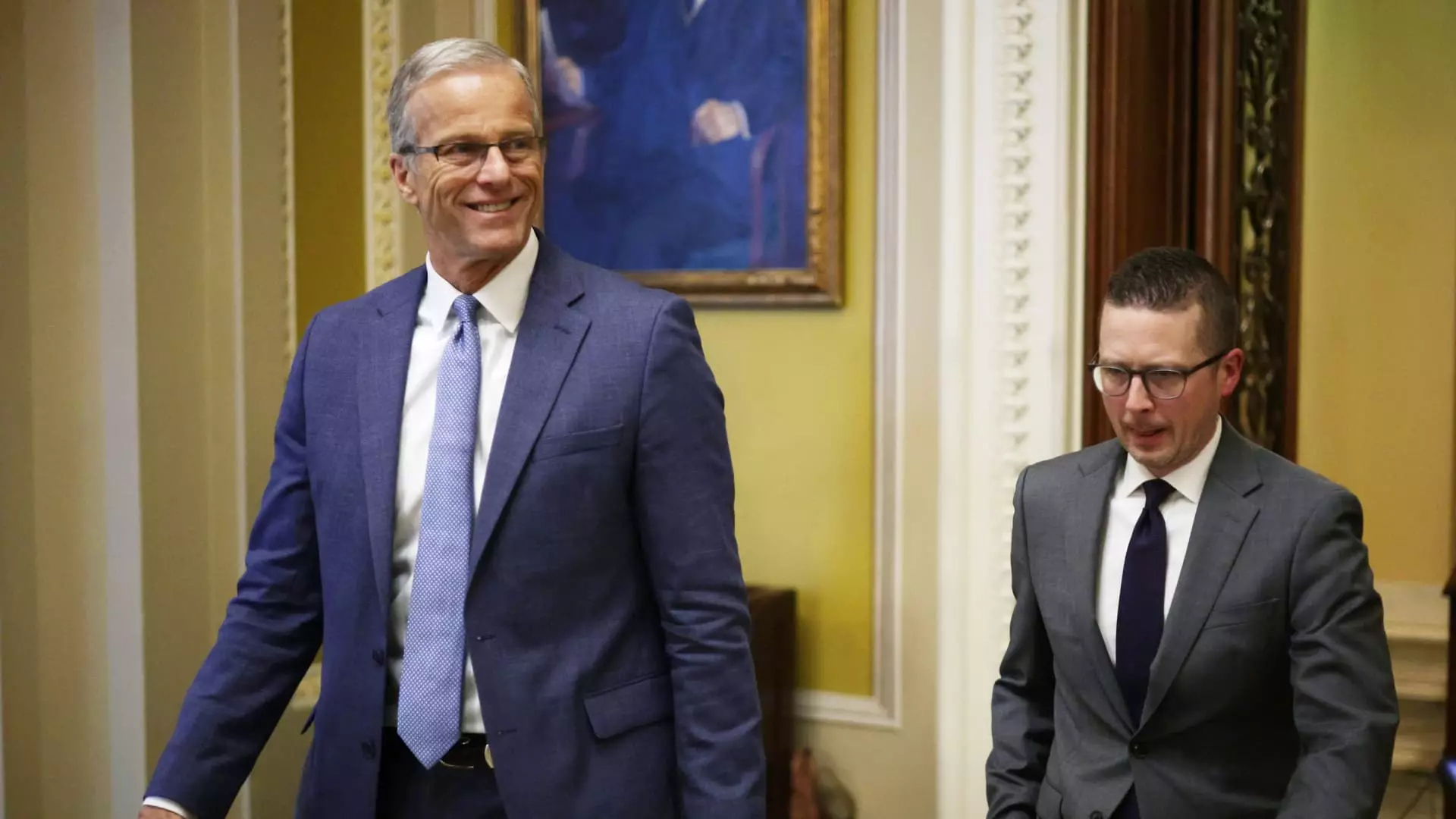The recent passage of President Donald Trump’s ambitious megabill by the Senate illuminates the fragility of bipartisan cooperation in today’s polarized political landscape. A razor-thin 51-50 vote, culminating in Vice President Vance’s decisive tie-breaking, underscores the tenuous consensus that underpins this legislation. While some might view this moment as a triumph of perseverance and strategic negotiation, the reality is that it exposes significant cracks within the conservative ranks and highlights the fragility of legislative unity. The fact that three Republican senators—Thom Tillis, Rand Paul, and Susan Collins—defied their party’s majority to oppose the bill signals the presence of dissent and ideological dissonance. These defections serve as a stark reminder that even within party lines, loyalties are shifting, and the push for comprehensive policy reforms is far from a smooth journey.
The Legislative Odyssey and Its perilous Path Forward
The bill’s journey from the Senate to the House exposes a complex web of political maneuvering and strategic posturing. The Senate’s triumph is merely a chapter; the real challenge lies ahead as the bill confronts resistant factions in the House of Representatives. The House, already having passed a version of the bill by a narrow margin, is unlikely to accept the Senate’s substantial modifications without fierce debate. The core issue remains: how to reconcile the bill’s significant expansions with fiscal responsibility. The Congressional Budget Office’s projection that the bill will add at least $3 trillion to the deficit over a decade is a critical point of contention. This looming figure fuels opposition from fiscal conservatives who fear the long-term economic repercussions of increased entitlement spending and government expansion.
Furthermore, the House’s narrow majority adds an element of uncertainty. With a small cushion of three votes, Speaker Mike Johnson’s ability to steer the legislation through hinges on fragile party unity. Any defection could spell a legislative failure, delaying or completely derailing the legislative process. Conservative elements within the House—especially fiery members like Rep. Chip Roy—are openly skeptical of what they characterize as Senate tactics intended to rush the bill through before the July 4 deadline. Their opposition raises questions about whether a compromise can be reached in time or if partisan deadlock will prevail, risking a legislative shutdown or a missed opportunity to enact the policy.
The Political Chess Match and Rising Political Stakes
Behind the scenes, the legislative process transforms into a high-stakes chess game, with party leaders and president Trump himself actively influencing the outcome. Senate GOP leaders engaged in relentless negotiations, with many amendments introduced during the marathon vote-a-rama designed more to score political points than to alter the bill’s core provisions. Democrats, meanwhile, seized upon procedural tactics to pressure Republican colleagues, forcing difficult votes and exposing ideological divides. This game of political brinkmanship amplifies the tension, as each side seeks to leverage procedural advantages to shape the final bill.
Trump’s vocal push adds another layer of intensity. By publicly urging lawmakers to pass the bill before the July 4 deadline, he emphasizes the importance and urgency of this legislation. His social media campaign has transformed into a rallying cry, fueling partisan pressure and adding stress to lawmakers deliberating whether to support a bill that, despite broad outlines, remains deeply contentious. The looming deadline could either catalyze bipartisan compromise or result in a chaotic legislative halt, with serious repercussions for both policy objectives and political credibility.
The Fundamental Tensions Beneath Promises of Unity
This legislative episode exposes the broader tensions within the American political system—between ideology and pragmatism, between fiscal responsibility and policy ambition. The bill’s ambitious scope—aiming to codify Trump’s domestic agenda—unsettles liberals who fear this will lead to excessive government expansion and long-term debt increase. Conversely, skeptics within the conservative camp worry that the bill’s compromises risk diluting core conservative principles and delaying meaningful reforms. This showdown highlights a deeper ideological struggle: whether to prioritize ambitious policy implementation or to maintain fiscal discipline.
The behavior of individual senators and representatives reflects these tensions. Defections from within the GOP reveal internal divisions that threaten to undermine unified governance. Meanwhile, Democratic opportunists are eager to exploit procedural vulnerabilities, ensuring they are on record opposing or supporting specific elements of the legislation. This dynamic underscores that legislative battles are less about policy and more about political dominance and positioning. Both sides are aware that this bill, regardless of its content, serves as a proxy for larger ideological narratives—about the size of government, fiscal responsibility, and the future direction of American policy.
By now, it’s clear that the success or failure of this legislative effort hinges on unpredictable factors. Deep-rooted ideological divides, strategic legislative maneuvers, and external pressures from key figures like Trump all interplay in shaping the next chapter. Whether the bill becomes law or collapses under mounting opposition, this process exemplifies how high-stakes politics often eclipse rational policymaking—casting doubt on whether the legislation truly serves the nation’s long-term interests or simply reflects political expediency.

